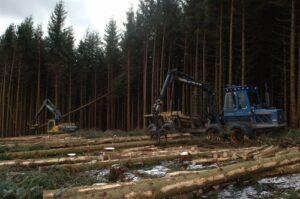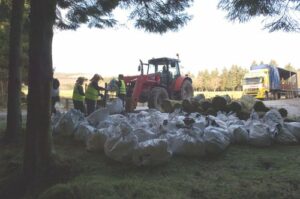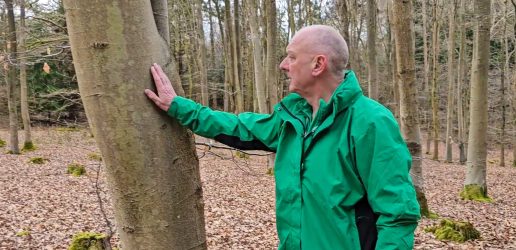There is increasing interest in understanding, valuing and supporting the variety of ecosystem services that forests and woodlands can provide in the United Kingdom. These services include the capture and storage of carbon, the interception of rainwater, and the provision of wellbeing benefits.

Landowners and managers can play an important role in the provision of forest ecosystem services through active woodland management and woodland creation. There is interest in understanding the mechanisms which could be used to encourage land management activities which support this delivery.
In a newly published report, Forest Research’s Liz O’Brien and Bianca Ambrose-Oji, along with researchers from the Sylva Foundation and the University of Oxford, explain research investigating land manager understandings of payments for ecosystem services (market mechanisms to support delivery of ecosystem services), as well as their use of formal and informal networks to support decision-making, and the ways in which they learn from others.
The research found that many land managers were not familiar with the term ‘ecosystem services’ or the concept of ‘payments for ecosystem services’. However, they did often recognise that their woodlands could provide a range of benefits to society.
The research also revealed that land managers use a range of formal and informal networks to support their decision-making. Important networks are those related to place (in particular those in their immediate locality), networks related to woodland management and associated institutions, and networks related to social and personal identity.
Learning, on an individual basis or through others (so called ‘social learning’), is important in changing individual and group behaviours. Social learning is an important consideration in land management where new schemes, particularly those associated with payments for ecosystem services, may rely on landscape and community scale change.

The research found land managers most often associated learning with conceptual and practical thinking and were interested in learning about strategies for maintaining the sustainability of their forests in the face of climate change, pest and diseases, or for ensuring economic stability.
The research concluded that payments for ecosystem services, networks and social learning could be helpful approaches used to encourage greater woodland management and woodland creation and the delivery of forest ecosystem services. These could be considered independently or in varying combinations as part of a multi-faceted approach. They could also be combined with other mechanisms to provide land managers with a mix of options of support. The research emphasised the importance of understanding and engaging with land managers to involve them in the design of the mix of approaches that might be used.

Forest Research, in partnership with Edinburgh Napier University, have taken a first step in systematically assessing the timber potential of underutilised species in the UK.
Tree professionals working in arboriculture are being asked to take part in a new tree health survey as part of a DEFRA-funded project looking at pathways and practices concerning the tree disease, canker stain of plane.

Nature, the world’s leading multidisciplinary science journal, has published findings from a new global study investigating which tree species fix the most carbon.

Forest Research, in partnership with Edinburgh Napier University, have taken a first step in systematically assessing the timber potential of underutilised species in the UK.
Tree professionals working in arboriculture are being asked to take part in a new tree health survey as part of a DEFRA-funded project looking at pathways and practices concerning the tree disease, canker stain of plane.

Nature, the world’s leading multidisciplinary science journal, has published findings from a new global study investigating which tree species fix the most carbon.